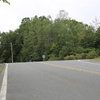Switzkill Farm prepares for Farmers’ Museum
BERNE — A Farmers’ Museum could be the newest addition to Switzkill Farm, parkland owned by the town of Berne.
The proposal was made at the Berne Town Board meeting on Oct. 10 by Switzkill Farm Board Chairman Ted Kunker and Roger Chrysler, a farmer who is part of the board’s task force and does haying and odd jobs like plowing at Switzkill Farm.
Kunker requested use of the farm’s Pheasant House for the museum. He said that old farm equipment and records would eventually be moved to the building, which was once used for raising thousands of pheasants yearly, and that Chrysler would set up these displays.
Kunker explained at the meeting that the museum plan has two phases. The first phase culminated with presenting plans to the Switzkill Farm and town boards. Kunker told The Enterprise on Tuesday that the Switzkill Farm Board met on Oct. 2 and approved moving forward with the first phase of the plan. At the Oct. 10 town board meeting, the town board agreed to the first phase. Supervisor Sean Lyons said that the town’s building inspector would first have to review the building.
At the meeting, Highway Superintendent Randy Bashwinger asked about the status of a grant that would repair the roof of the main building at Switzkill Farm. Lyons said that the town wouldn’t receive an award until November. From the gallery, Phil Stevens also warned against using any buildings at all on the property due to their condition.
The town spent $112,000 to purchase the 350-acre Switzkill Farm four years ago from Buddhists who had established a center there 15 years ago.
Switzkill Farm was an election issue a year ago as Republicans criticized Kevin Crosier and the all-Democratic town board for having the town purchase the Switzkill Farm land without a public referendum. Crosier was ousted as supervisor by Lyons, a Republican. Bashwinger and Stevens are also Republicans.
Kunker told The Enterprise on Tuesday that the Pheasant House must be first cleaned out before it is inspected, but said that repairs may have to be made so that it can house the museum.
“It’s an out building now,” said Kunker.
He said that it hasn’t been determined how repairs would be funded since the nature of what repairs are needed is not known, but said that it is possible that grants or donations could fund repairs.
Kunker said he would like to see the cleanup occur within the next two or three months, and hopes to see the museum opened in some capacity next year.
Kunker told The Enterprise that Chrysler had brought up the idea about six months ago. Chrysler serves on Switzkill Farm’s task force as an agricultural specialist. Kunker said the task force is made up of people who share their expertise in order to help the Switzkill Farm Board.
Kunker said that the museum board would contact different farmers in the community; he said many have old equipment they may like to donate as well as photographs of their farms and families.
He said many descendents of Berne’s founding families still live in town, and many date back to the Anti-Rent Wars, in the 1840s when tenant farmers in the Helderbergs revolted against the feudal dutch patroon system.
Kunker also speculated that items from the town’s museum, located up a flight of stairs above the town offices at Town Hall, could be brought to Switzkill Farm to be displayed, since it may be more accessible on a ground floor. He said the group would be speaking with Berne’s historical society.
The metal-clad building known as the Pheasant House is about 1,600 square feet with multiple sections that had been used to raise pheasants in the past, said Kunker. He said that old equipment like incubators is displayed there now, where 5,000 to 10,000 birds used to be raised each year.
Kunker said that a wing of the building could be used by wildlife rehabilitator Kelly Martin to house some of the birds of prey she cares for. He also said that a local parent would like to form a 4-H group and could also use the Pheasant House for club activities, as well as help care for the museum and have it open to the public more frequently.
A heritage garden behind the building that was started this year could also be used as part of exploring agriculture, he said. Kunker noted that these plans are all very preliminary.
The museum would be free and open to the public, though Kunker believes that it would be open only during special events like Harvest Fest or by appointment with the groundskeeper Nelson Kent.
New lights
The board also reviewed a program to upgrade its streetlights that would allow the town to qualify for a grant through the New York State Energy Research and Development Authority.
Councilman Joel Willsey said Berne has already completed three out of four energy-saving “action items” required to qualify. The fourth item, said planning board member Todd Schwendeman, could be upgrading the town’s streetlights with light-emitting diodes, or LEDs through a program with the New York Power Authority.
Jessica Waldorf of NYPA described the program, which she said could be funded with a payment plan and would reduce the cost of the town’s electricity bill. She added that LEDs “got a bad rap” for light pollution due to their brightness, but she said that newer models can have their brightness and light temperature adjusted as well as be equipped with dark-sky compliant fixtures.
Other business
In addition, the board also:
— Held a public hearing on and approved a law that would allow more board oversight of the youth council;
— Discussed with Highway Superintendent Bashwinger either writing a formal shared-services agreement with other Hilltowns or finding the text of one created with Westerlo around 2005;
— Accepted the resignation of Debra Bajouwa as chairwoman of the planning board. Mike Vincent will serve as acting chairman for the remainder of the year and alternate Alexis Goldsmith is recommended to be appointed as a new member;
— Heard from Youth Council Chairwoman Jean Guarino that the council is looking at prices for safety training for volunteers;
— Heard from Berne Public Library manager Kathy Stempel that Ryan Smithson of Averill Park will speak at the library on Friday at 7 p.m. about his book “10 Klicks South of Whiskey,” a young-adult war novel with a moral message;
— In a 3-to-2 vote, declined to appoint Bashwinger to the Youth Council, with Supervisor Lyons and Councilman Dennis Palow voting in favor — both Republicans, like Bashwinger — and Willsey and Councilwomen Dawn Jordan and Karen Schimmer, all Democrats, voting against it. The decision of whether Bashwinger should be appointed has been on the table since March;
— Introduced a proposed law that would allow more board oversight of the Switzkill Farm Board. A public hearing would be held on Nov. 14 at 6:45 p.m.; and
— Issued a proclamation recognizing Gerald Cross, a volunteer emergency medical technician of 57 years who was named Basic Life Support Provider of the Year by New York State over the weekend at the Vital Signs Conference in Syracuse.



